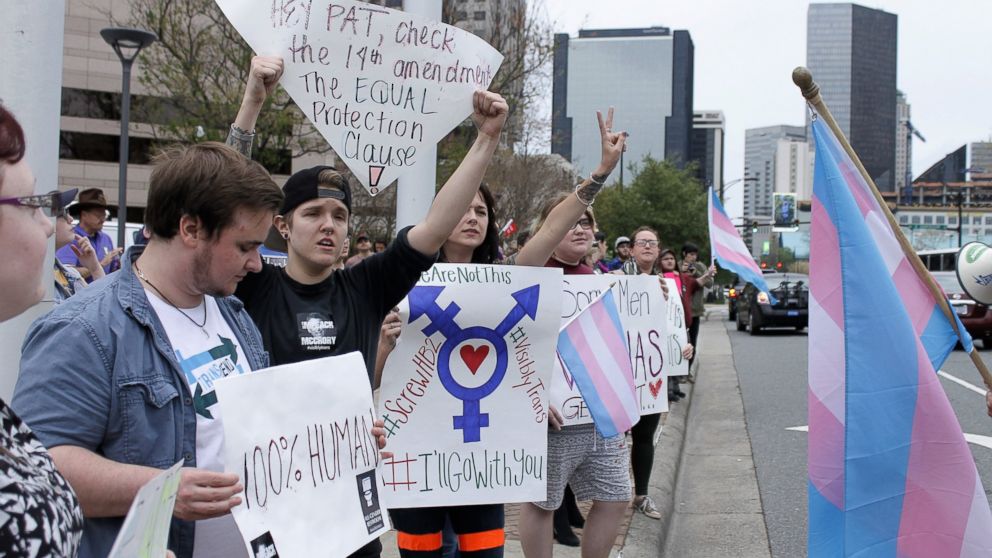Why Businesses Aren't Threatening to Leave North Carolina Amid 'Anti-LGBT' Law Backlash
Major corporations are urging the repeal of House Bill 2 but haven't packed up.

— -- More than 100 businesses are demanding that North Carolina lawmakers repeal a law that they consider to be anti-LGBT. But none so far has threatened to leave the state.
Last week, North Carolina Gov. Pat McCrory signed House Bill 2, formally known as the Public Facilities Privacy and Security Act. The law bans people from using bathrooms that don't match the sex indicated on their birth certificate, which bill opponents say will discriminate against the transgender community. Opponents of the law are pressuring McCrory and state lawmakers to repeal it.
Experts say there are a few reasons why businesses are reluctant to completely pack up and leave.
"These companies have made long-term investments or are thinking about long-term investments in North Carolina" and won't likely retreat solely due to this law, DJ Peterson, founder of Longview Global Advisors, told the Associated Press. Longview is a consulting firm in Los Angeles that advises companies on political, social and economic issues.
Doug White, philanthropic adviser and faculty member at the fundraising management program at Columbia University, told ABC News that while it may cost a business to move out of the state, a more pertinent reason not to move may be that the bill "as I understand it, has almost no real force, and so a business would not be moving to protest anything really tangible,"
Despite her opposition to the law, Selisse Berry, founder and CEO of Out & Equal Workplace Advocates, hasn't encouraged companies to leave North Carolina even if they oppose the recent legislation. Out & Equal is a nonprofit group based in San Francisco and Washington, D.C., advocating for workplace equality for the LGBT community.
"Whether it be in India or Indiana, we don’t encourage a company to pack up their offices and leave when anti-LGBT legislation gets passed," Berry told ABC News. "Rather, we encourage them to remind their local governments about the importance of LGBT diversity and inclusion."
Berry said she applauds companies like Bank of America, the largest private employer in North Carolina, that are working toward repealing the legislation.
"The biggest impacts are made not by quitting or pulling the jobs of thousands of hardworking Americans and moving states but by staying and doing the serious and focused work of making things better," she said.
New Jersey-based Braeburn Pharmaceuticals, which had plans to build a $20 million manufacturing and research facility in Durham County, North Carolina, said it's evaluating its options. But the company fell short of saying it was pulling out of the project.
"Building a manufacturing and research facility is a business necessity to ensure we fulfill our commitment to patients; we are reevaluating our options based on the recent, unjust legislation," the company said in a statement.
New York's Democratic Gov. Andrew Cuomo banned nonessential, publicly-funded travel to North Carolina earlier this week. McCrory and proponents of the law have described the corporations and politicians who are banning travel to the state as "hypocrites" for not having a law that enforces gender usage in bathrooms.
Proponents, like the North Carolina Family Policy Council, argue that the law "does not impact the ability of businesses to adopt their own internal employment, non-discrimination, or bathroom policies."
Last week, after Georgia lawmakers approved a bill that opponents say limited the rights of LGBT individuals, 34 entertainment industry leaders signed a letter saying they would not work in the state again unless the bill was vetoed. Georgia Gov. Nathan Deal indicated that he would veto the legislation.




